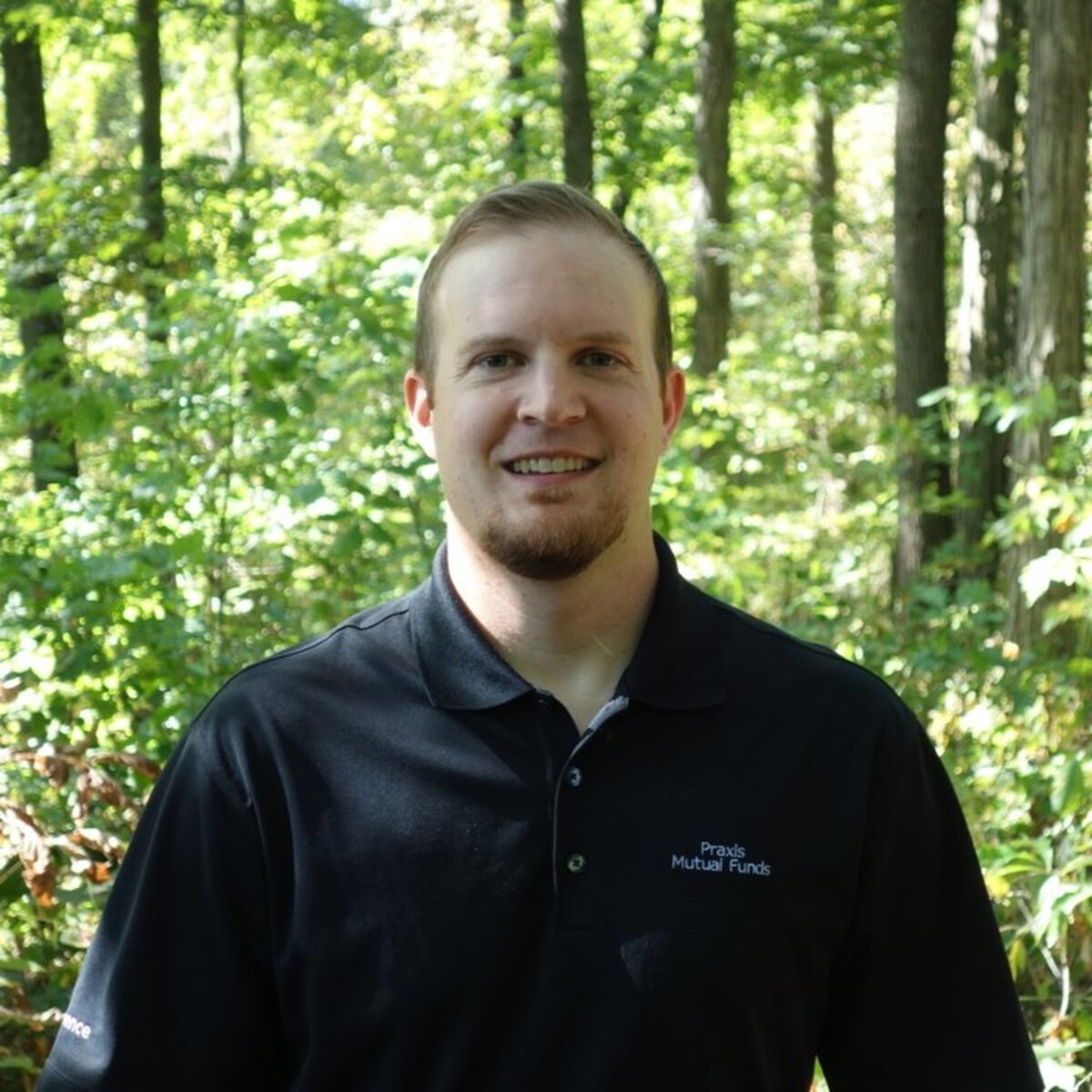Impact Investing with Chris Meyer
Impact investing and shareholder advocacy are powerful tools. Chris Meyer talks about how it’s done and how you can participate!
Listen to us On
About the Episode
We focused on impact investing through shareholder advocacy, the special rights and privileges of shareholders, how to use that influence for more than simply returns, and how to vote with your dollars, with Chris Meyer, Manager of Stewardship Investing Research with Praxis Mutual Funds.
Listen to hear a difference-making tip on how to make your investment dollars matter!
You can learn more about Chris at PraxisMutualFunds.com, Twitter, YouTube, and LinkedIn.
Did you get anything out of this episode? Do us a solid and leave a review:
https://ratethispodcast.com/lifebloodpodcast
Learn more and engage at MoneyAlignmentAcademy.com, Twitter, LinkedIn, Instagram, YouTube and Facebook.
Buy George G a coffee (he loves coffee)
https://www.buymeacoffee.com/lifeblood
Have George G speak
https://moneyalignmentacademy.com/speaking/
Financial literacy and wellness for individuals, families, and companies
https://moneyalignmentacademy.com/
Find George G’s books here
The Aligned Money Show is the podcast for Money Alignment Academy, copyright 2024.

George Grombacher
Host

Chris Meyer
Guest
Episode Transcript
george grombacher 0:00
So, Chris, to get us started give us two truths and a lie.
Chris Meyer 0:07
Okay. I’ve been working at Praxis for over 17 years. i In the past, I lived abroad for five years. And I love to farm and practice forestry management.
george grombacher 0:28
All right, Praxis for 17 years lived abroad for five and forestry management. I don’t think you’ve been in practice for 70 years. Chris.
Chris Meyer 0:41
That one’s true. Oh, all right.
george grombacher 0:44
Which one? Which one is alive?
Chris Meyer 0:48
I haven’t lived abroad for five years. I spent a semester abroad, but that’s the extent of my living abroad. All right,
george grombacher 0:57
you got me? Where was the semester spending abroad?
Chris Meyer 1:00
I was in Germany.
george grombacher 1:02
Okay. All right. Very cool. And you are not only a good steward of investing, but also of our natural resources.
Chris Meyer 1:15
Yes, thank you, literally taking
george grombacher 1:17
care of the land. So all right, excellent. Well, I’m excited to have you on and dig in everything with you. What is top of mind for you right now?
Chris Meyer 1:27
Well, quarter four is always a very busy season four company engagement. So I’ve been, you know, at the top of my mind is a lot of dialogues with companies and reports to file and doing a lot of research, that sort of thing. So it’s a it’s very active time for investors who engage with with companies to conduct meetings, that sort of thing.
george grombacher 1:54
So, and you’re always researching, you’re always looking into stuff.
Chris Meyer 1:59
Absolutely, yeah. There’s, you know, my role at at praxis, there’s a lot of research I’m doing all the time in regards to company practices. I work on the screening that we do at our at our funds. But I also, you know, engage companies along, you know, collaborate with other like minded investors to approach companies and work on various types of issues, often environment or human rights related, that we feel are pertinent to the company, but they might not have adequately addressed and so, yes, it’s always busy before that sort of thing. There’s kind of limitless, you know, work to do in that area. But a lot of some of the more formal meetings may happen in the fourth quarter. And so, yeah, it’s it’s a busy time of year,
george grombacher 2:57
when you say that there’s an issue or something that’s important, but it hasn’t been adequately addressed. What does that mean? What do you mean?
Chris Meyer 3:06
So I think what I primarily do is practice shareholder advocacy, meaning that I will use I you know, I work for a mutual fund practice mutual funds, and we own, you know, 1000 companies or hold 1000 companies at any given time. Part of what we consider to be stewardship investing is our approach to responsible investing is to try and make a difference where we can we use different strategies to do that. One of them is company engagement, which, you know, I will also call shareholder advocacy. And it means making use of the rights and privileges to have stock ownership to engage with the companies that we own shares in. And there is a long track record of investors like us, and a lot of our colleagues who do similar things, to seeing issues come up, that are important, they have great, you know, global significance, but they really haven’t been factored in to company business plans to take climate change for one is one that over two decades ago, we and other investors were saying, look, there’s some, some issues here, like if the science here, you know, bears out, then everything about how you conduct business, or many things are going to be affected. And we want to see you be proactive about that for both our own for your own profitability, and also because it’s the right thing to do. We’re, you know, long term investors, we want to see companies be profitable on behalf of our clients. And we also want to see them, you know, help the world thrive. And there’s There’s a lot of power that companies have. And I think often when they address addressing some of these issues, it can, it can make the world a better place. But it can also lead to long term profitability for the company so that they’re not, you know, getting risking reputation or League have legal risks, that sort of thing. We do a lot of human rights work as well. And, you know, sometimes companies will see a lot of issues, after we bring them to their attention and say, Well, thanks, you know, these are your concerns that these could blow up anytime we really need to have adequate safeguards in place, and we can do better we see some gaps now. So yeah, there’s, there’s a lot of different issues that have come up over the years that we’ve been able to bring to company’s attention, and, you know, kind of work with them to develop management plans for and they’ve often turned out to be depression. Issues.
george grombacher 6:02
Nice. Well, I certainly appreciate that. So he talked about the rights and the privileges of ownership, just quickly break down, what some of those, what that really translates to,
Chris Meyer 6:14
sure, being an owner, or part owner of a company, you kind of have your foot in the door, if you want to see companies change, I mean, there’s kind of the inside or outside methods, you know, from outside, you can, you know, protest or, or whatnot, on the inside, you can actually have access to these rights and privileges of ownership. And that can in terms of shareholder advocacy, that can take the form of at its most basic letter writing. So petitioning, you know, members of the executive team, etc, you can go through investor relations, that’s like, maybe one place to start, but it’s not always the most effective. But it can include, you know, filing shareholder proposals at companies. So if you want to see, all the shareholders be able to show their concern over a particular topic, you can put it to a vote, it also means the ability to speak with company management, and that we consider to be kind of the pinnacle of company engagement to reach the point where you’re having a mutually beneficial conversation with company management on the topic that you really want to see there be. So policy change on and we yeah, that’s, I mean, that’s several steps from the beginning. But that’s what we hope to do. And we wouldn’t be able to do those sorts of things and have the ear of the company if we weren’t owners of the company.
george grombacher 7:57
So people invest their money with practice and evidence. You have you have mutual funds, and other investment vehicles, you mark it. So you have this, this, this this pool of assets that you deploy, and then you’ve made the decisions to invest in these 1000 companies. And because of that you have clout, you have the right to vote, all all of these rights and privileges, and you have the ear of company management that gives you the opportunity to advocate on behalf of what your clients what the what your investors are telling you is a value and important to them.
Chris Meyer 8:42
Sure, absolutely. Yeah, that’s, that’s all correct. And I’d say it works both ways, too, with our constituents. I mean, a lot of what we do is say, here are our core values at praxis. So everence is the parent company practice mutual funds is our fun family of five different mutual funds. And we say here are the values we have. Here are the types of industries we screen out here, the, you know, types of things we seek to change in companies. And so people if they feel they’re aligned with that, they may invest with us. And we also pay attention to what their concerns are, as well. Yeah, and we are able to use that clout to try and one we have a fiduciary responsibility to our clients and investors to, you know, provide returns on their investments. We also want seek to transform the world as well. And company engagement is one of the strategies we we use to do that. So yeah, we also I want to mention that we partner with other like minded investors like alone, we always we can always do what we want or it takes a lot more work if we’re doing engagement alone. So we partner with with other investors, some of them are smaller mutual funds like we are, others are a bit larger. And in recent years, there’s a number of large some of the largest pension funds in North America, we’ve aligned with and collaborated with on various engagements with companies like CalSTRS and CalPERS. In California and the New York State Pension Fund, and a number of others. So, yeah, I think our the amount of support we’ve received for these kinds of efforts has increased substantially over time as, as more and more investors and fiduciaries see that there are material risks to a lot of factors that in the, in the past, now getting to be the more distant past, fiduciaries would have seen as non material, but now they’re saying that they actually do have quite an effect on long term profitability.
george grombacher 10:59
I think it’s exciting. And I appreciate that. That you are as I guess, the term is intentional with with with, with how you’re going about this. I imagine that each company is going to be unique you own or invest in over 1000 Different companies, and having the ability to speak with company management, obviously, you can’t active or maybe you can, are there a certain number that you’re trying to reach out to all the time? Is it ongoing communication? How do you how do you sort of pick your spots?
Chris Meyer 11:42
I mean, you bring up a great point. I mean, we can’t cover 1000 companies in direct, intentional engagement every year. That’s, I mean, yeah, we need to have an unlimited budget for that. But we do touch all the companies in certain ways, for instance, in how we vote, I mean, every company we own shares in we have votes with. And we have a proxy voting policy that integrates our values into the guidelines. And so we at least touch every company that way. So there may be investor colleagues of ours, or allies who will file proposals that companies that we don’t have anything to do with, but we do get to vote on that. And so we get to kind of weigh in with our perspective there. In terms of direct engagement with companies, we engage about 20 to 25 per year. And we have to prioritize what issues are going to be our focus. And we also would touch maybe 100 or 200 companies in total, through investor letters. And again, we’re not always the ones who are developing newsletters, but we may be just signing on to one. So yeah, I mean, that’s kind of the breakdown, 20 to 25, companies will directly engage per year, and maybe about two engagements per company per year would be about an average, we’ll touch a one or 200, indirectly, or directly with letters. And then we’ll vote at all the companies we hold.
george grombacher 13:19
How long has this practice been going on?
Chris Meyer 13:24
I think the first shareholder advocacy that I’m aware of was done starting, as we know it now was was done starting in the 1970s. With a few faith based investors, and I think it there was a significant attention brought to it in the 1980s with apartheid in South Africa, and how there were shareholders that were trying to and ultimately we’re successful and hoping to move companies to oppose apartheid in South Africa, and Praxis has been been doing shareholder advocacy since the early 1990s. Well, Praxis was founded in 1994. And kind of from that beginning was was doing shareholder advocacy.
george grombacher 14:20
So you are working to engage with 20 to 25 companies a year directly and then signing on or writing letters to around 200 Give or take, and the issues that that that you are are advocating for how often are those changing or to those remained pretty constant?
Chris Meyer 14:42
That’s a great question. We we have a shareholder advocacy plan that’s on kind of a two year basis and are both of Practices Board of Trustees and the Evans board of directors will approve that plan. There is continuity from plan to plan to merely because company engagements often take a number of years. We we like to build trusting relationships with with companies. And we also develop expertise in areas over the years. And it’s it’s not easy to just jump from one topic to another. If we have a lot of knowledge in one area, we want to use it and not spend, you know, keep spending lots of time educating ourselves and then moving on to an entirely new topic every two years. So there is continuity. Right now we have two main issue focuses. One is on environmental sustainability. And that can break down into several sub issues most prominent right now is climate change. Another is toxic chemicals. Our other main issue is addressing inequality. And that can take the form of we wrap a few different things into that, including racial, gender, and economic equality inequality. And we as well as human trafficking are kind of in that subject area as well. So yeah, we’ve been doing both of those topics for a few cycles now. And there are changes to happen in kind of the sub issues. So we’ll add some in Sunset, some others that we feel like we’ve kind of done what we could on and the low hanging fruit is gone. And so we can move to low hanging fruit and other companies or on other issues.
george grombacher 16:38
Right. So y’all have been at this since 94, and shareholder advocacy started in the 70s. It seems that with ESG, and I guess that it’s come to I don’t want to call it a fever pitch, it’s just become a lot more popular, maybe over the past, I guess, probably going on a decade. Is that? Am I right in that?
Chris Meyer 17:05
Yeah, I think the people who promoted kind of these more social topics, environment, social, human rights, and even some governance issues, in the early years in the 70s, and 80s, where there’s a lot of faith based investors, or people who were just doing it out of an ethical or values based perspective. And that’s where our core is, as well. I mean, we’re affiliated with them and in the church, and we’re, our values derive from, from our faith and sense of ethics. In starting in the early 2000s. And, you know, certainly, you know, continuing to increase is the is investors who are seeing the materiality side of environment, social and governance factors. So, while we may say, Well, we care about this because of our faith, and because it matters. There are also a lot of people now saying, we care about this, because it affects the bottom line. And it’s kind of like the profit motive is the most important one. And that I think has happened. I mean, it’s in part due to the the mainstreaming of, of social concerns and integration. It can be, it’s not necessarily a bad or good thing. I mean, I think it’s good that more investors are aware of all of these factors that are going into company profitability, that sort of thing. Whereas it may have been dismissed in the past, but it’s but yeah, there are a lot of folks who say now, including large investment managers who have kind of baked in ESG into their investment and analysis is their investment process to us, because, hey, environmental things, human rights, you know, issues, and governance issues all affect a company’s business, they all affect the company’s profitability. If a company is not managing those ESG risks, then they can miss out on a lot of opportunities. And they may be hit with a lot of downsides of of not addressing those risks. So even outside of an ethical or values based framework, there are arguments, many salient arguments for paying attention to ESG.
george grombacher 19:37
That is, well said, Chris. Well, the people are ready. We’re ready for your difference making tip would you have for us?
Chris Meyer 19:45
Yeah, I think I’d say that your investments have an impact on the world. And there are lots of ways to make a difference with your investments and I would encourage people to seek to align their money with their values. There are a lot of funds and advisors that are out there, too, that can help facilitate that. There’s, there’s lots of options. Now, there might have been more limited options there. There were more limited options 10 or 20 years ago, but there are a lot of a lot of places that can help people integrate what they care most about with their money and their investments.
george grombacher 20:29
Well, I think that that is great stuff that definitely gets come up. It gets nothing but a really cool and exciting thing exactly what you just said that not only do I get to choose where I spend my money and how but I can also continue that impact through how we’re actually investing our money. And it was great to get a little inside baseball into how it actually works from a great mutual fund copy like practice, so I appreciate it. How do we learn more? How do we get involved with practice?
Chris Meyer 21:01
You can go to practice mutual funds.com It’s the best. Best stop for for learning more.
george grombacher 21:06
Excellent. Excellent. Well if you enjoyed this, which is I did check out what Chris is working on at Praxis pra Xis mutual funds.com. So dig deeper into it and see if it’s an opportunity for you to invest with them as well. Thanks again, Chris.
Chris Meyer 21:26
Thanks a lot for having me here. George. Appreciate it.
george grombacher 21:28
You’ve got finally run the reminder that there’s never going to be anybody more interested in your financial success then you act accordingly.
More Episodes
Real Employee Financial Wellness
Financial wellness is a great idea in theory, but a failure in practice. I encourage you to replace financial wellness with financial peace of mind. Most of us don’t want to spend a ton of time thinking about money. Yet currently, most of us are stressed and...
How You’ll Get There: Let Values Guide Your Path to Financial Success
On your path to get good at money, values are how you’ll get there. Values are what you believe to be of the greatest worth. The more we can incorporate our values into our decision-making process, the better off we’ll be. This is true for our personal...
Recognizing and Overcoming Limiting Financial Beliefs
We all have limiting beliefs. The child of billionaires could think, “There’s no way I'll ever be more financially successful than my parents.” The child of degenerates could think, “There’s no way I’ll ever amount to anything.” The important question for...
Live Below Your Means
Money is simple and straightforward. Here’s how you do it; spend less than you make and live below your means. But that appears to be impossible for most Americans. Three in five Americans are living paycheck-to-paycheck. 77% of us are anxious about money. ...
Don’t Put All Your Eggs in One Basket
With your personal finances, don’t put all your eggs in one basket. And the opposite is also true; don’t spread them out amongst too many. The idea is to find the proper amount of diversification that will help get you where you want to go, without too much...
Level Up Your Professional Skills for a Modern Workplace Pivot
Business and the modern workplace has changed thanks to the pandemic, and your professional evolution will need to keep pace. Investing in yourself and your skills will help you pivot to meet new opportunities as they arise. Level up your skills with these ideas from...
How to Stay Out of Debt
How to stay out of debt is one of the most important questions we can ask ourselves. This is because debt is a killer of dreams and a cause of limitless stress and anxiety, and a driving force behind the demise of relationships. Too harsh? I don’t think so. ...
Steps to Success with Your Money
There are steps to success for improving and getting better at anything and everything. It’s not always easy to figure out what the steps are, and once you know, you’ve still got to follow them. This is true for getting good at money. You’ve got to figure...
Overcoming Inaction
Inaction can afflict all of us. It presents itself in our very human desire to put things off. Humans are great at rationalizing inaction and procrastinating. The problem is, when we procrastinate, nothing happens. Nothing is created. And while individual...
Join the show.
Interested in being on the show? Tell me a little bit more about you and what you’d like to talk about!














